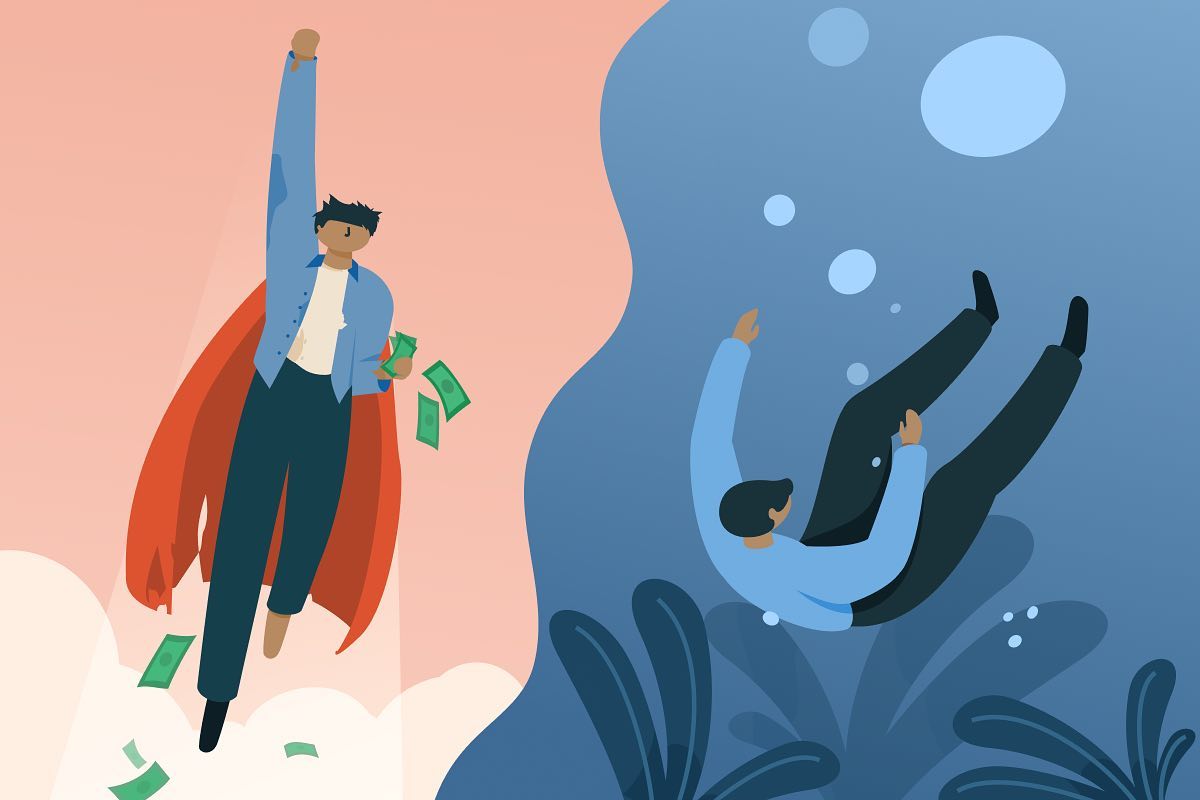Bipolar Disorder, sometimes referred to as Manic Depression is a mood disorder, and is the name given to the experience of extreme moods or exaggerated mood swings. Bipolar Disorder is characterised by extremely ‘high’ moods where one becomes overly euphoric or elated and the experience of extremely ‘low’ moods where one becomes overly sad and finds it difficult to experience any pleasure. The high moods are called manic episodes (also known as mania or hypomania – we explain these below) and the low moods are called depressive episodes. These episodes can range from mild to severe and affect how a person thinks, feels, and acts. However, it is important to remember that some people may experience different patterns associated with Bipolar Disorder. For example, some people may experience only one episode of mania but more frequent episodes of depression.
It’s really important to highlight that when we are talking about mood swings, we don’t mean going from happy and smiley to a little bit flat and frowny (or vice versa); we are referring to extreme shifts in mood that don’t necessarily make a whole lot of sense in the context of what’s going on around us, and these moods can be really disruptive and interfere your ability to ‘do life’.
Signs and symptoms of Bipolar Disorder
Someone with Bipolar Disorder will experience mood changes ranging between manic and depressive episodes.
It’s also common to feel or experience:
- really high, inflated self-esteem
- increased energy
- irritability, agitation, restlessness
- a reduced need for sleep or insomnia
- an increase in goal-directed behaviour (e.g., staying up all night to get something done)
- racing thoughts
- spending a lot of money.
During a manic episode, people can also become out of control, feel very nervous and fearful (anxious), and become angry. They can become reckless without realising it, engage in dangerous behaviour and take huge risks (e.g., increased sexual activity, gambling, and drug and alcohol use). Mania can also cause psychotic thoughts and actions in more extreme cases.
When experiencing a depressed episode, it’s common to feel or experience:
- loss of interest in activities that you once enjoyed
- changes in appetite (eating more, eating less than usual)
- weight loss or gain
- changes in sleeping patterns (sleeping a lot, not sleeping at all or very little)
- a loss of energy and motivation to do anything
- concentration difficulties
- feelings of worthlessness, hopelessness, shame or guilt.
What are the different types of Bipolar Disorder?
There are several different types of Bipolar Disorder, and the type you’re diagnosed with often depends on your individual experience of mood changes, including how quickly your mood changes.
- Bipolar I. Is the most common and prevalent type of Bipolar Disorder. People with Bipolar I usually experience extreme highs (mania) that may be long-lasting, plus depressive episodes, and possibly psychotic episodes.
- Bipolar II. People with Bipolar II usually experience highs that are less extreme than mania (called hypomania) and only last for a few hours or days. They also have depressive episodes. Between extreme moods, they might have times when their mood is relatively normal.
- Cyclothymic disorder. A milder form of Bipolar in which moods are not as extreme, though still very disruptive to your life.
- Bipolar Disorder otherwise not specified. The mood changes that are experienced by people with Bipolar Disorder are different for everyone; this diagnosis is for those people who don’t fit into the above three categories.
‘It Ain’t Weak to Seek’… help: Where to get help?
Correctly identifying mental ill-health can help you begin to explore the various treatment options available to you so that you can better manage your well-being. As such, having an accurate diagnosis is the beginning of becoming well. Bipolar Disorder can only be diagnosed by your GP/ trained medical practitioner, psychiatrist or qualified mental health professionals. Medication is usually a part of a successful treatment plan for Bipolar Disorder, in conjunction with other treatments such as talk-therapy and self-help/ self-care strategies. Often a diagnosis of Bipolar Disorder takes time, as your moods will need to be monitored over a period of weeks or months. The good news is that Bipolar Disorder can be managed with the right treatment and support. If you can relate to some of the signs and symptoms described above, don’t immediately assume you have Bipolar Disorder, but please make sure you seek help, remembering that ‘It Ain’t Weak to Speak’.
Please speak to an appropriate professional if you have any concerns or questions regarding the information provided here.




